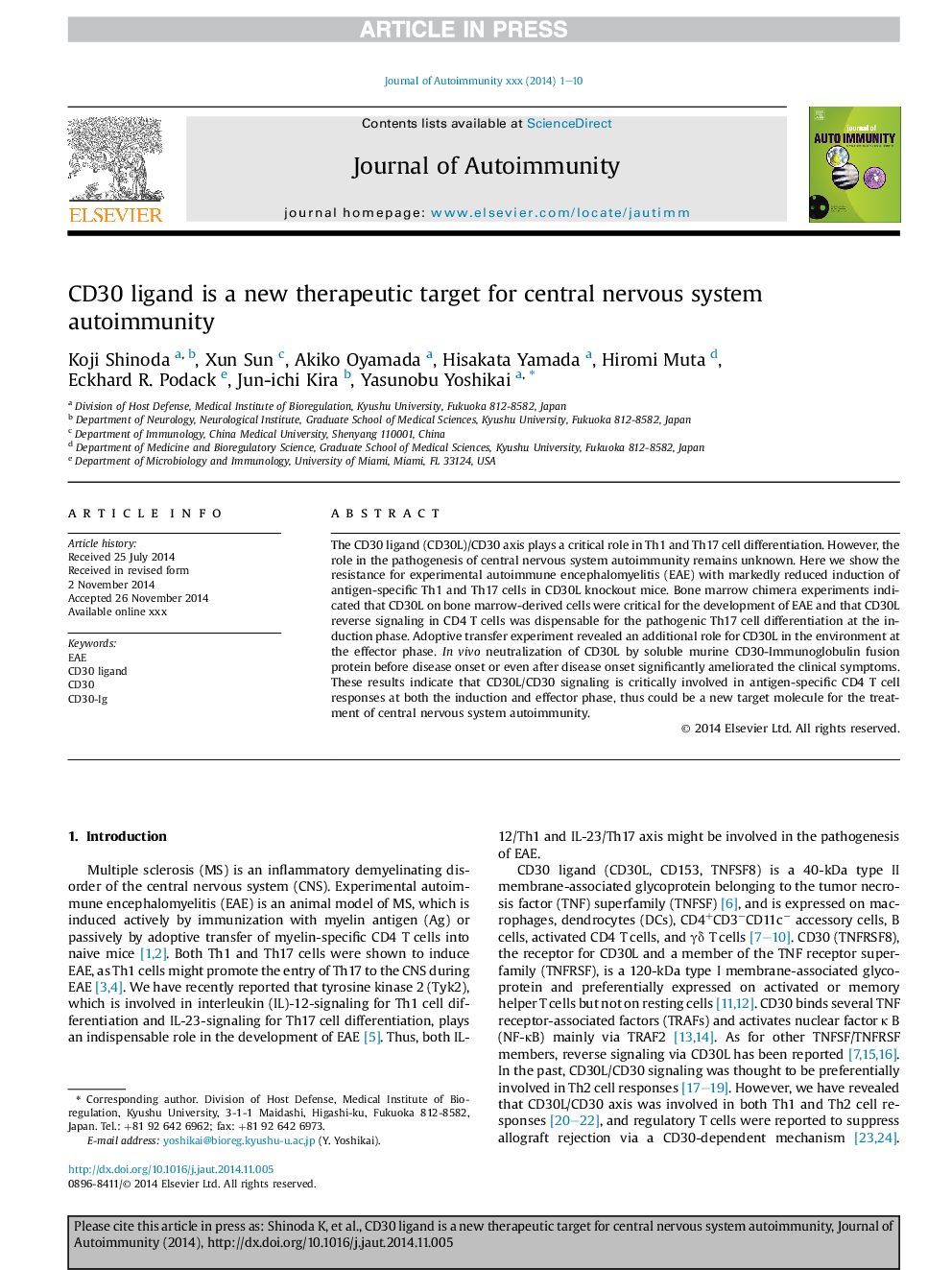| Article ID | Journal | Published Year | Pages | File Type |
|---|---|---|---|---|
| 6119212 | Journal of Autoimmunity | 2015 | 10 Pages |
Abstract
The CD30 ligand (CD30L)/CD30 axis plays a critical role in Th1 and Th17 cell differentiation. However, the role in the pathogenesis of central nervous system autoimmunity remains unknown. Here we show the resistance for experimental autoimmune encephalomyelitis (EAE) with markedly reduced induction of antigen-specific Th1 and Th17 cells in CD30L knockout mice. Bone marrow chimera experiments indicated that CD30L on bone marrow-derived cells were critical for the development of EAE and that CD30L reverse signaling in CD4 T cells was dispensable for the pathogenic Th17 cell differentiation at the induction phase. Adoptive transfer experiment revealed an additional role for CD30L in the environment at the effector phase. In vivo neutralization of CD30L by soluble murine CD30-Immunoglobulin fusion protein before disease onset or even after disease onset significantly ameliorated the clinical symptoms. These results indicate that CD30L/CD30 signaling is critically involved in antigen-specific CD4 T cell responses at both the induction and effector phase, thus could be a new target molecule for the treatment of central nervous system autoimmunity.
Keywords
Related Topics
Life Sciences
Immunology and Microbiology
Immunology
Authors
Koji Shinoda, Xun Sun, Akiko Oyamada, Hisakata Yamada, Hiromi Muta, Eckhard R. Podack, Jun-ichi Kira, Yasunobu Yoshikai,
